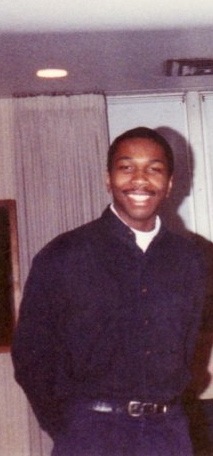Tags
ABC, Al Green, Bruce Springsteen, Climate Change, Conservatives, Creed, Donald Trump, Election 2012, Gay Rights, Genesis, GOP, Grover Washington Jr., Herman Cain, Human Rights, Immigration Reform, James Blunt, John Mellencamp, Lower Taxes, Maxwell, Michelle Bachmann, Mike Huckabee, Mitt Romney, Newt Gingrich, Patriotism, PE, Political Messages, Presidential Candidates, Protest Songs, Public Enemy, Racial Justice, Republicans, Sade, Sarah Palin, Tea Party, Ted Nugent, The Cranberries, Theme Songs, Tim Pawlenty, TPers, U2, unemployment, Usurping Messages

Huckabee with Ted Nugent on guitar, Huckabee Show, FOX News Channel, May 14, 2011. Source: http://dailymail.co.uk
Ever since Mike Huckabee announced that he wasn’t running for POTUS in the Election ’12 cycle (after playing chords with Ted Nugent), I’ve been thinking about an appropriately snarky and sarcastic way to understand the GOP/Tea Party candidacy process. It’s been a bit confusing. Between Trump and Huckabee, Newt Gingrich and Herman Cain, Pawlenty and Romney, Palin and Bachmann, I’d have a hard time finding a candidate I’d vote for even if I were a true American conservative.
But I do know what would help. Theme music to get our juices flowin’, to rile us up about how excited we should be that among these candidates is a challenger worthy of President Barack Obama. Heck, it’s worked before. Ed Meese and Don Regan used Bruce Springsteen’s “Born In The U.S.A.” and John Mellencamp’s “Pink Houses” as theme music in ’84. This despite the fact that these were protests songs of an America anti-common man and pro-war.
GOP/TPers can do the same in ’12. Here’s a list of songs to usurp — oops, I mean use — between now and November 6 of next year.
1. Genesis, “Illegal Alien” (1983), as in, “It’s no fun/being an illegal alien” — especially if the GOP/TPers take over in ’12.
2. James Blunt, “No Bravery” (2005), a truthful description of what it takes to run on the GOP/TP ticket, i.e., no independent thought.
3. ABC, “How To Be A Millionaire” (1985), which should be retitled, “How To Be A Billionaire,” since that’s the ultimate goal of the leaders of the GOP – “a million is not enough” could be the party’s new slogan.
4. U2, “Crumbs From Your Table,” (2004), which, if these folks are elected next year, will be all we’ll have to eat by the ’16 election cycle.

Crumbs on my table, courtesy of Noah's old elephant and a Lipton tea bag wrapped around trunk, May 30, 2011. Donald Earl Collins.
5. Chicago, “Hard Habit To Break,” (1984), especially in the refrain, “I’m addicted to you,” meaning easy money from top 1%, debt and low taxes, and oil, oh, sweet crude oil!
6. The Cranberries, “Zombie,” (1994), the sincerest hope of the GOP/TPers when it comes to what’s left of our voting populace.

Herman Cain, They Think You're Stupid Book Cover (more like We Think You're Stupid), 2009. Source: National Black Republican Association, http://nbra.info
7. Al Green, “One Of These Good Old Days,” (1972), a tribute to the way the Party of Corporations wants things to be for rich – it’s their climax song!
8. Prince, “1999,” (1983), except they would definitely change it to “1899,” the height of affluent largesse, corporate greed and monopoly-building (until the ’00s), and acceptable racism.
9. Creed, “My Own Prison,” (1997), one of the ultimate dreams of the GOP/TPers, that we’d build our own prisons and then put ourselves in them so they don’t have to worry about job creation.
10. Grover Washington, Jr., “Summer Chill,” (1992), what the party hopes their paid-off scientists can “prove” in a new study funded by the John M. Olin Foundation, the Heritage Foundation, and the Scaife Foundations, making “Drill, baby, drill” a reality in ANWR.
11. Public Enemy, “Welcome To The Terrordome,” (1989), most likely would be used by the GOP/TPers to promote gladiator-like games as a way to bring the unemployment rate down for those they can’t get to build their own prisons.
12. Sade, “The Sweetest Taboo,” (1985), a tribute to all of their in the closet and anti-gay party members willing to sacrifice the civil and human rights of LGBT Americans everywhere for a seat in Washington.
13. Maxwell, “…Til The Cops Come Knockin’,” (1996), the general plan for all elected GOP/TPers until they’re caught in illegal activities.
In addition, there’s Alexander O’Neal’s “When The Party’s Over” (1987), another example of what would happen to us, our country and our world if the GOP/TPers reclaimed and remained in charge. They’d suck the bottom ninety-nine percent of us dry until the good times are over, and then blame us for not letting them steal the plumbing, too. Please add to this list. I could’ve created an iPod list of a hundred appropriate songs, but fourteen’s just a start. Eat your heart out, Ted Nugent!











